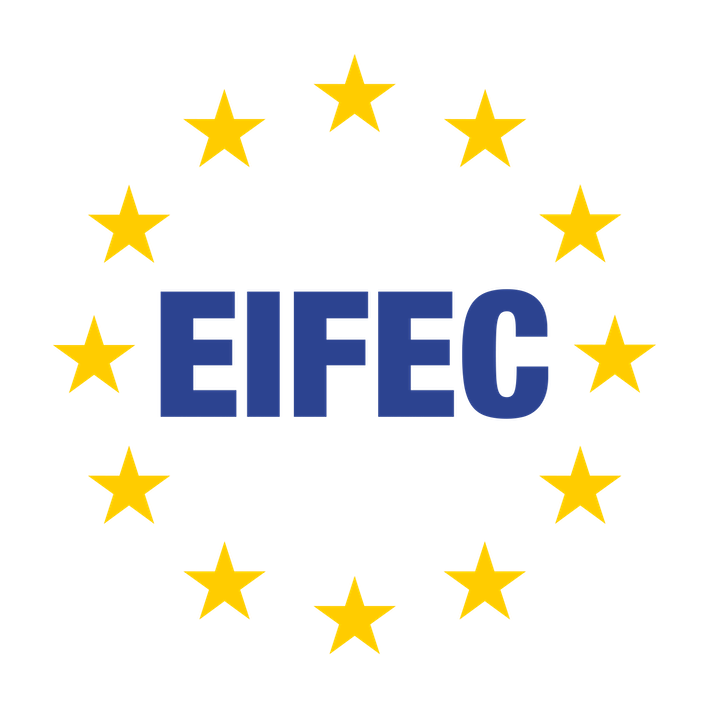THE CODE
EU EXPORT COMPLIANCE CODE (EU-CEC)
- INTRODUCTION
- EXPORT COMPLIANCE DEFINED
- PRINCIPLE AND VALUES
- CODE OF PRACTICE
- 10 KEY ELEMENTS
- DOWNLOAD
The European Code of Export Compliance (EU-CEC) aims to encourage the dissemination of best practices and principles in Export Compliance Management as defined in the EU-Export Compliance Framework (EU-ECF) with all EU and non EU actors involved in import / export of goods and services.
This Code describes the guiding principles and practices to promote an European culture of compliance with the rules and laws (Compliance) within the financial, economic, industrial, associative system of private and public sectors.
EIFEC aim to contribute by all appropriate steps to disseminate among the Organizations behaviours of excellence through proper management, transparency and audit of the activities performed in the production and transfer of goods and services.
“Export Compliance” is the specialized multidisciplinary framework/discipline which covers all activities of Export (i.e. goods and services, tangible and intangible Items, transfer of means of payment), that are somehow subject to Export controlling regulations (i.e. Dual Use, Sanctions etc.) applicable to Transactions between two different states/jurisdictions/ entities. It provides support to Organisations in Compliance Risk Management, i.e. the risk of legal or administrative sanctions, financial losses or reputation deterioration for failing to comply with laws, regulations and legislations, codes of conduct and good practices.
“Export” means any Transaction or interaction subject to legal control in accordance with applicable jurisdiction’s definitions. It includes, in a broader sense, any “import” since each export entails an import as an indissoluble operation (trade).
“Compliance” means the act or process of being in conformity with external applicable regulations, guidelines and relevant laws, including legislative requirements to meet all the organization’s compliance obligations.
“Organisations” refers to, but is not limited to, all private or public bodies, companies of any nature, associations, universities, research institutes etc. that have activities falling within the scope of Export Compliance Standard Code EU-CEC
“Item” stands for “product, service, software and technology, whether tangible or intangible”.
“Transaction” encompasses virtually any kind of interaction, including but not limited to selling, purchasing, loaning, licensing, renting, quoting, returning, repairing, providing services, providing samples, visiting, meeting, training, making or receiving payment, hiring, mergers and acquisitions, accessing controlled data and collaborating in research involving controlled data.
“Internal Compliance Program” (ICP) means, as general definition, effective, appropriate and proportionate means and procedures (including the development, implementation and adherence to standardised operational compliance policies, procedures, standards of conduct and safeguards) developed by Organisations to ensure compliance with the provisions and with the terms and conditions of relevant laws.
“ECAP” (Export Compliance Administration Program) is the ICP specialized in Export Compliance with international, European and national regulations, based on EIFEC EC1001 series Export Compliance International Standards.
Transparency:
All Organizations act and communicate in a transparent manner, in their relation with EU, member states Institutions and all stakeholders, about operating Export Compliance policy, and the economic, financial and legal implications of each activity undertaken. (Commitment to Transparency)
Compliance:
All Organizations act in conformity and compliance with all EU regulations as well as rules and laws of the EU Member States where business and activity or import and export are having place. (Commitment to Export Compliance)
Accountability:
All Organizations are deem to act acknowledging, assuming responsibility for and being transparent about the impacts of their policies, decisions, actions, products and associated performance.
Consistency:
All Organizations act consistent with prior acts and statements. Organizations must be consistent in applying the Export Compliance principles, methods, practices, and procedures. Organization will ensure that the same rules and behaviors are followed in all activities being reported. If a change is made to an Export Compliance method, the effects of the change must be clearly disclosed.
Effectiveness:
All Organizations undertake to use all its available means, including labor, financial resources, and goods and services either received or created, in such a way as to pursue the Organization’s Export Compliance purposes to the highest degree possible
Organizations adopting the European Code for Export Compliance aim to implement the Principles written above and will develop, adopt and put into operation Export Compliance policies and procedures that uniquely addresses their Organization- specific requirements (Unicuique suum Principle or Appropriateness).
Several factors such as the Organization’s size, the end-use and sensitivity of products, the geographic location of business and customers, the relationships with business partners, volume of exports, product restrictions, and complexity of national export procedures will influence how an Organization structures its operative activity.
However, there are certain key elements that are recommended for all Organizations, because those key elements serve as a foundation for accountability for any Organization.
By establishing best Export Compliance practices from the beginning, you will have a program that evolves and grows along with the business, and is flexible to adapt to regulatory changes.
10 key elements has been identified by major experts in Export Compliance: Governments, Regulatory Bodies, Banks, Institutions, and special professionals.
-
Management Commitment to Compliance
-
Appointment of the person in charge
-
Export Compliance Administration Program
-
Risk Assessment and Treatment
-
Information and Training
-
Record Keeping
-
Audit
-
Handling Non Compliance Issues
-
Maintain your Export Compliance Manual
-
Integration with Quality Management practices

